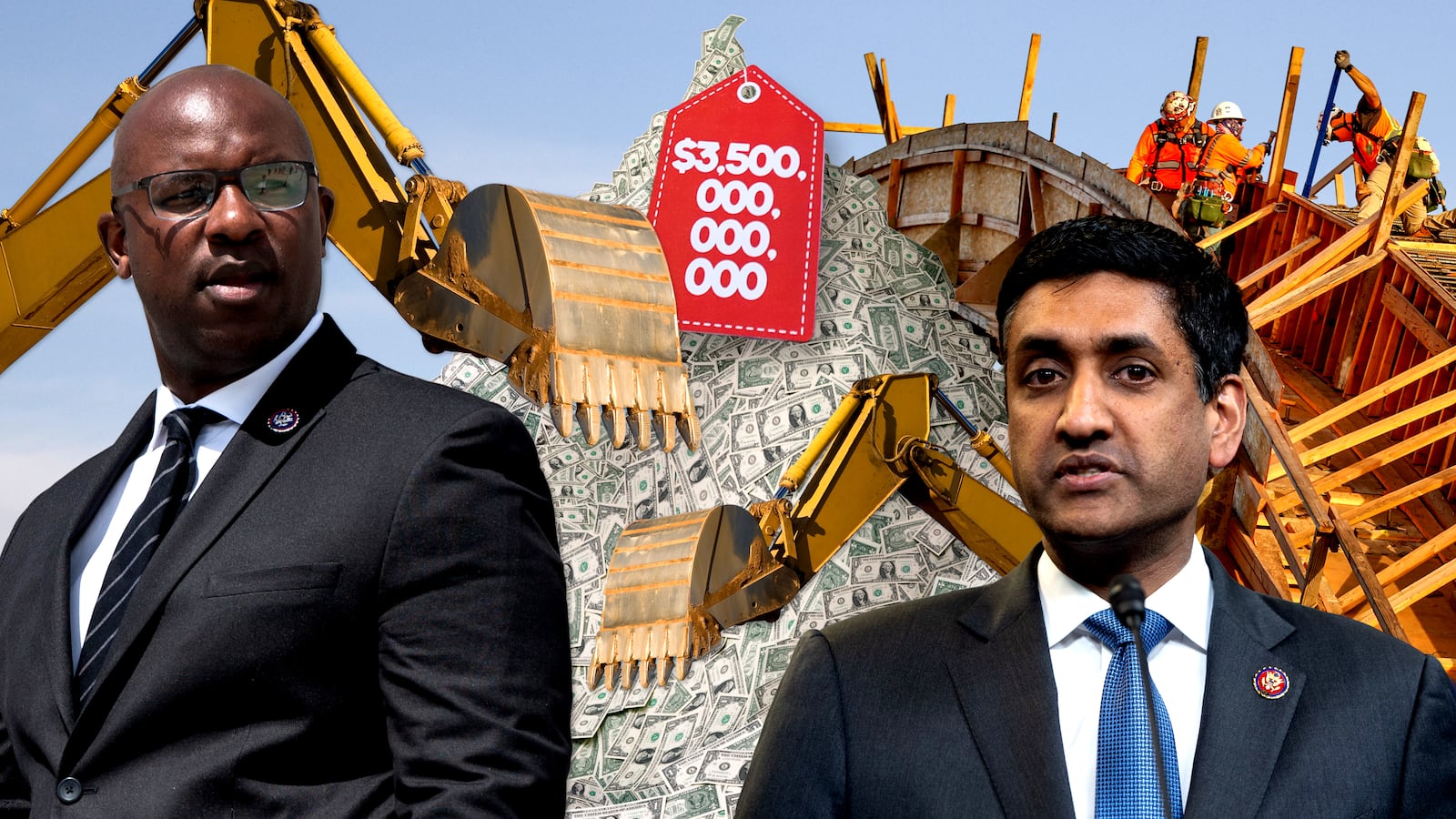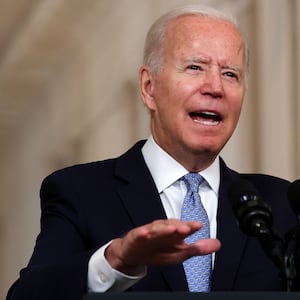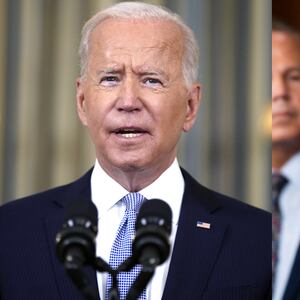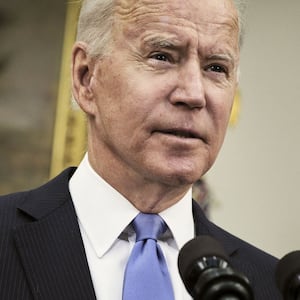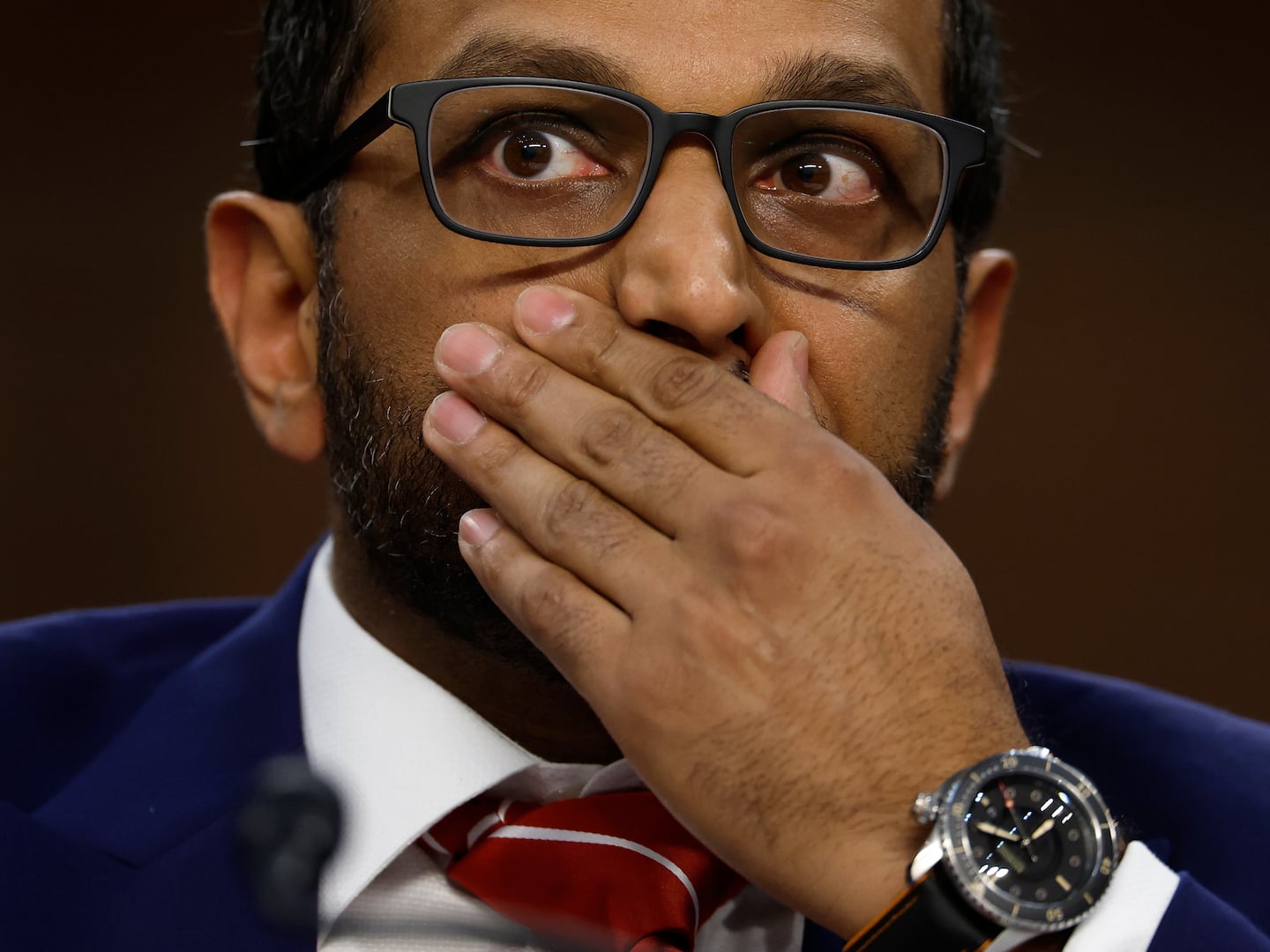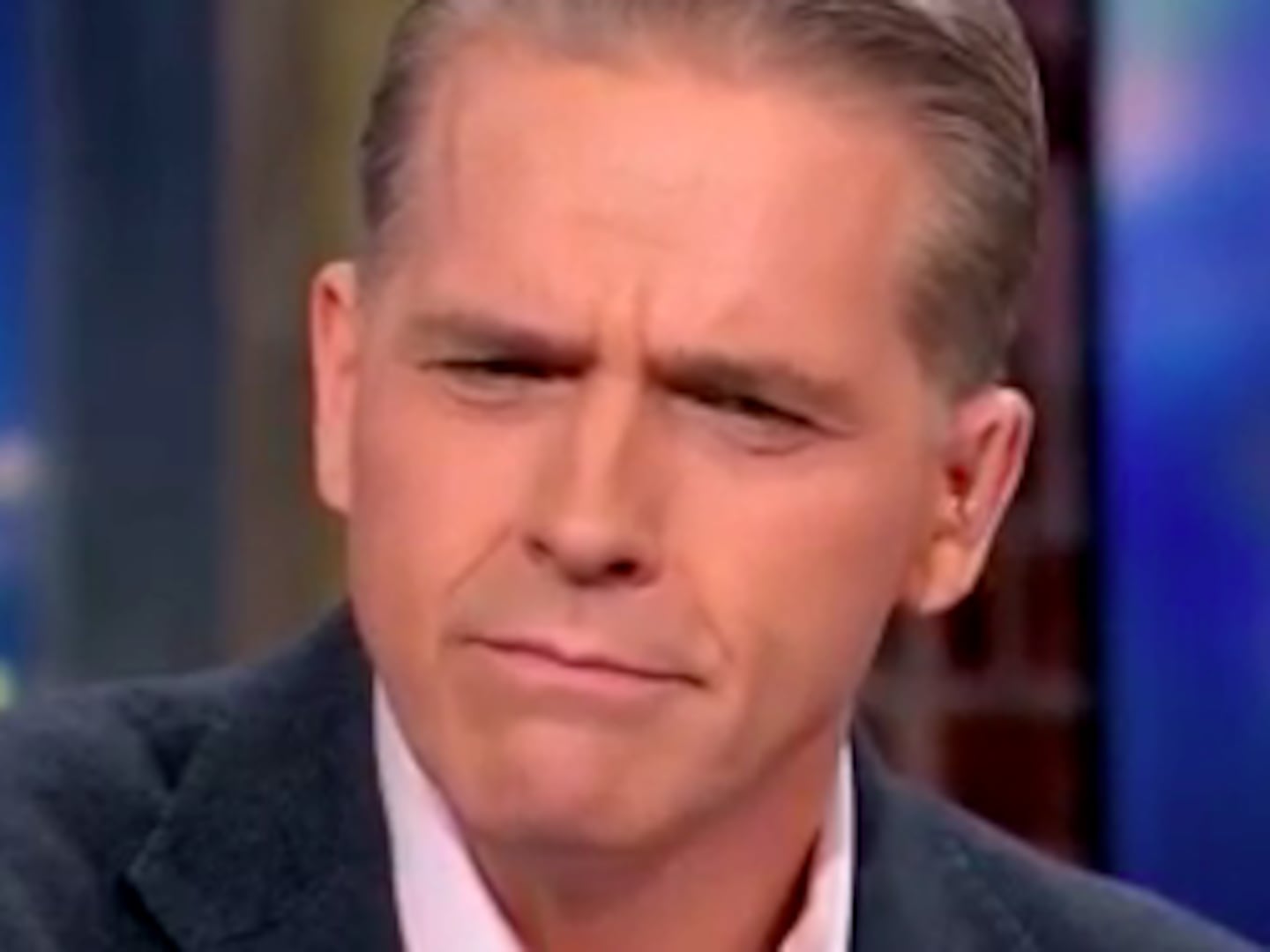As they struggle to muscle through their sweeping domestic agenda, Democrats are grappling with how a vast array of policy choices—from tax hikes on the rich to massive benefits expansions—will affect the party’s chances in the 2022 midterm elections.
But a number of Democrats are beginning to settle on a simple lodestar for those political calculations: YOLO.
Call it the You-Only-Live-Once mentality. Or, perhaps more fittingly, You-Only-Legislate-Once.
To Democrats, this moment is their best shot to pass transformative legislation while they still have the power to do so. The GOP’s structural advantages for 2022 have some lawmakers privately pessimistic they’ll get another two years in charge on Capitol Hill. One Democratic lawmaker told The Daily Beast that 2022 was shaping up to be a “bloodbath” for the party.
And facing that grim scenario, many Democrats feel they might as well go as bold and big as possible in crafting a bill that achieves their liberal priorities—and let the political chips fall where they may.
Increasingly, plenty of Democrats actually believe this route might open up a path to midterm victory. A successful domestic policy package, they argue, could re-engage the voters who showed up to deliver Democratic wins in 2020, and demonstrate to the broader electorate that Democrats are capable of fulfilling their lofty promises.
One progressive, Rep. Jamaal Bowman (D-NY), said Democrats “have to deliver” on both a $1 trillion bipartisan deal on “hard” infrastructure, as well as a multi-trillion-dollar “Build Back Better Act.”
“That’s critical for 2022 and beyond,” Bowman told The Daily Beast. “Hopefully, as we come out of this, the American people can see a government that works.”
While it’s unsurprising that progressives would endorse that bold vision—most liberal members represent very safe Democratic seats where the only threat to re-election is a primary challenge—even Democrats in tougher races have indicated that the best path is to deliver President Joe Biden’s $3.5 trillion bill.
A few of those lawmakers are already being attacked by deep-pocketed GOP groups over the legislation before it’s even ready, and there is a sense among some that Republicans will hit them no matter the actual details of the bill.
Among some battle-tested Democrats, it very much matters what’s in the bill—and several are publicly sounding the alarm that a go-big-or-go-home approach would result in lots of Democrats doing just that.
Rep. Henry Cuellar (D-TX), who has represented a purple South Texas district since 2005, recalls 2009 and 2010, when Democrats in his telling “went big” on a number of items.
“I learned when I was in the state legislature, don’t fall on the sword unless it’s worth it,” Cuellar said. “And I broke that rule, a lot of us broke that rule, in 2010, and you saw we lost 63 Democrats.”
These schisms over the political impact of Democrats’ ambitious plans are coming to a head this week, as the party is forced to make critical decisions about what the bill will cost, how it will be paid for, and what, exactly, it will fund.
Much of the party would like to see something very close to what Biden proposed: a $3.5 trillion plan chock-full of investments in nearly every policy area Democrats care about. The basis of that legislation includes items like expanding Medicare benefits and universal paid leave, as well as investing heavily in tackling climate change and making permanent a significant child subsidy that Democrats passed earlier this year.
But a small segment of Democratic moderates believe that $3.5 trillion is far too much to spend after the historic COVID relief bills of the last year. And many are also highly dubious of party leaders’ claims that the legislation will be paid for with revenue raised elsewhere.
Last week, Speaker Nancy Pelosi (D-CA) and Majority Leader Chuck Schumer (D-NY) convened a press conference to announce they’d reached a “framework” on how to raise the $3.5 trillion, but it seemed no other Democrats had seen it, and few know for sure where the funds would come from.
Still, as Rep. Mark Takano (D-CA) pointed out, it’s a very small contingent of Democrats holding up success for the rest of the caucus. He estimated it was 4 percent in either chamber—two Democratic Senators and about 10 House Democrats—and he said those Democrats have refused to say what it is they want cut from the reconciliation bill. “It is not up to me, or any other member, to say ‘What part of the baby should we give you?’” Takano said. “It’s up to them to say what they want to take.”
Still, those lawmakers who stand opposed have the advantage of a slim majority. Nothing can pass in the Senate without Kyrsten Sinema (D-AZ) and Joe Manchin (D-WV), and the margin of victory in the House is only three votes.
Members like Cuellar are wary that a combination of more federal spending and tax increases—even if largely on the wealthy—could make it all too easy for the GOP to paint the project as a fiscally irresponsible bonanza of liberal wish-list items.
“There are some who believe they’re going to attack you no matter what. I mean they are, but still,” said Cuellar. “I saw what happened in 2010 and I certainly don’t want to go through that.”
Progressives, many of whom spent the 2020 presidential primary opposing Biden, say they are simply fighting for the president’s agenda as he presented it, and argue that skeptics should trust his political instincts.
“He’s been a moderate his whole career, he understands the politics,” said Rep. Ro Khanna (D-CA), a former co-chair of Sen. Bernie Sanders’ 2020 campaign. “He's not going to put things in a bill that are going to put people in a very difficult position.”
Complicating Democrats’ calculus is the link between the sprawling Build Back Better Act and the narrower bipartisan deal, which aims to fund construction and repair of roads, bridges, railways, airports, and other infrastructure projects nationwide.
Moderates successfully used their leverage in the narrow House majority to force a vote on the bipartisan deal, which is scheduled for Thursday. Progressives have vowed to vote that bill down unless it’s paired with the social-welfare legislation. But if it passes, moderates could have even more leverage to shape the latter bill around 2022 concerns.
Democrats poised for tough races next year are anxious to pass the narrower bill as soon as possible, so they can begin selling a clear bipartisan win as soon as possible.
“This is a solution that is vetted. The infrastructure bill is ready to go,” said Rep. Chris Pappas (D-NH) “And we have to show that we’re able to deliver for this country. So I think the idea of moving ahead with infrastructure and then working together to craft a reconciliation bill is appropriate. It’s what the country needs, and we can get that done this week.”
Some Democrats are also convinced of the popularity of these proposals—a departure from the early Obama years, when they mounted a huge effort to pass the Affordable Care Act and then allowed Republicans turn the complicated bill into a political albatross.
When The Daily Beast asked Rep. John Larson (D-CT) if this was a YOLO moment like with Obamacare—Larson was chairman of the Democratic Caucus in 2010 when the health-care law passed—he suggested this moment with infrastructure and social welfare programs was about getting the policy and the politics right. “I think it’s a combination of both,” he said. “But we’re going to get it done.”
Still, some Democrats believe these various calculations may not matter when voters actually begin paying attention next year. One Democratic lawmaker, speaking anonymously to candidly describe dynamics, said one contrarian view was that 2022 will hinge on Biden and Democrats’ handling of the COVID-19 recovery, not the exact particulars of these two pieces of legislation.
“I expect that we’re going to lose the House, but I don’t buy into the argument that if you fail to do this, we’re guaranteed to lose the midterms—nor do I buy the argument that if we do this, we’re guaranteed to win the midterms,” said the lawmaker.
Still, that lawmaker said much of the caucus agrees with a position set out by Pelosi: that it will be better for Democrats to do a few things well in this package—like making the child tax credit permanent—rather than fund many things for a short amount of time. “You can’t campaign on alphabet soup,” they said. “Let’s talk about climate change and putting money in the hands of working families.”
Some Democrats are thinking about their agenda’s success or failure in even broader terms. During a Monday caucus meeting discussing the legislation, Rep. Colin Allred (D-TX), a GOP target who flipped a Dallas-area seat in 2018, said Democrats needed to succeed on this front in order to stave off the return of Donald Trump and other extreme elements in American politics. Sources say that rallying cry generated the most raucous response of the night.
“Authoritarians and people who are anti-democratic feed on inaction by democratic governments,” Allred told The Daily Beast the next morning. Democrats’ response, he said, “has to be showing that all that organizing and all those people came out and voted in the pandemic, that it worked… that we then will pass legislation that will help you.”
“My point,” Allred continued, “wasn’t that it’s going to help us in terms of that we’ll campaign on it; it’s showing we can govern.”
Those who have been in a similar position before, meanwhile, argue it is the big picture that matters most. Former Democratic Rep. Tom Perriello lost his purple Virginia seat in 2010 after taking a difficult vote in favor of the ACA, and he’s spent the years since affirming he wouldn’t have done anything differently.
Perriello told The Daily Beast that the chance to pass transformative legislation is why you go to Congress.
“Go bold,” he said, “and then you’re delivering huge for the base, huge for suburban women, and that probably gets you re-elected next year. And if it doesn’t, being a former member of Congress is a lot more fun than being a member of Congress.”
—with reporting from Matt Fuller

